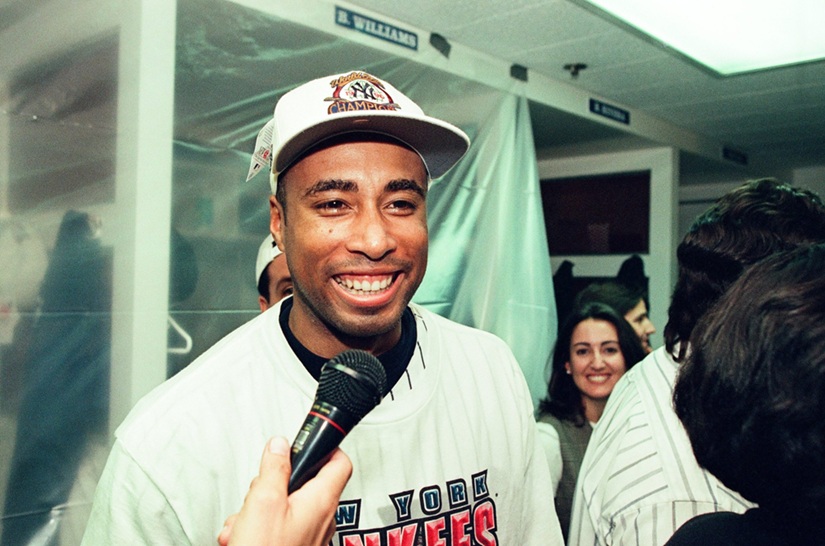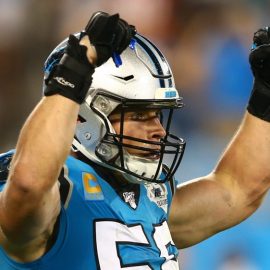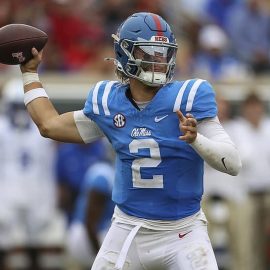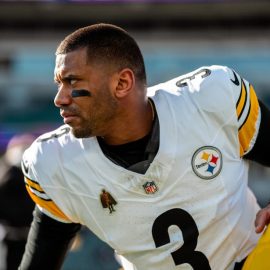Not so long ago, David Beckham’s move to LA Galaxy would not even have been possible. It was facilitated by a change in Major League Soccer’s rules. Tim Leiweke, the alpha male of the Galaxy, worked hard to lobby the league’s owners to join his crusade and the Designated Player Rule was born in time for Beckham’s arrival in 2007.
The reason Leiweke and the Galaxy needed to induce constitutional change to make way for the signing of Beckham is that MLS works to a salary budget, promoting financial sustainability and league parity. Each of the league’s fifteen clubs must build its squad within that budget, currently a meagre $2.3m. Clearly a league in which players of the quality of Houston Dynamo defender Geoff Cameron earn just $34,000 – and others as little as $20,000 – will struggle to attract any kind of marquee names from abroad.
Here’s how it works: each club has been allocated a designated player slot which allows it to add a player to its roster who would, in other circumstances, smash the salary cap. MLS holds contracts centrally and pays the designated player $415,000 which in turn counts against the club’s salary budget. The player is paid more than this, of course. The remainder is made up locally by the club. For example, David Beckham may be on $5.5m salary (that’s without all the endorsements and sponsorship deals), but MLS pays him $415,000. AEG and the Galaxy make up the difference.
Designated players in 2009
In 2009, just six MLS clubs have a designated player on their books. David Beckham, of course, is the best known. Minus the $415,000 paid by Major League Soccer, LA Galaxy pays the former England captain a base salary of $5.5m. Seattle Sounders’ Freddie Ljungberg earns $1.3m, Cuauhtemoc Blanco of Chicago Fire almost $2.8m and DC United striker Luciano Emilio $720,000. Guillermo Barros Schelotto of Columbus Crew banks $650,000 and Juan Pablo Angel, New York Red Bulls’ designated player, takes home a base salary of $1.5m.
It seems there are two approaches to taking advantage of the Beckham Rule (though there are many other complications like guarantees to be considered here). Galaxy, Sounders, RBNY and the Fire have used the rule to pick up players ordinarily out of Major League Soccer’s budget, while DCU and Crew have taken the chance to reduce the salary hit from Emilio and Schelotto to $415,000 and make up the shortfall in-house. This frees up some space under the salary cap to stop the roster being too top-heavy.
New York Red Bulls, incidentally, could in theory take on a second DP. The Beckham Rule states that each team may have up to two designated players, a situation which can be brought about through the trading of one club’s DP slot to another. Accordingly, RBNY traded Amado Guevara to Chivas USA in 2007 in return for a second designated player slot, currently unused. DC United also had a second slot, but traded it back to Colorado Rapids – its original home – in the deal which took Christian Gomez back to RFK.
Why do so few teams take advantage of a rule which could help them attract some star power? Financially, it may not be viable for every club. But it’s also a question of balance, and when one is working to a cap of $2.3m the ‘spending’ of $415,000 is not to be taken lightly. Not having a DP could make all the difference when it comes to preventing a top-heavy squad. From Wahl’s book, it’s clear that LA Galaxy suffered from this in 2007. Ordinarily, Landon Donovan – now on $900,000 – would have become the Galaxy’s designated player. As it was, he and Beckham accounted for a huge proportion of 2007’s $2.1m salary cap, leaving precious little room for Frank Yallop to build the rest of the squad.
Time for reform?
The Beckham Rule is, in theory, a finite one in its current form. It’s up for review at the end of this season and apparently formed the centrepiece as MLS owners talked shop in Utah during All-Star week. It seems certain that the Designated Player rule won’t be disappearing anytime soon. Beckham, for all the friction, has been a marketing success for Major League Soccer and LA Galaxy. But with reform – or at least evolution – on the cards, should MLS be extending, changing or scrapping the rule after 2009?
The two strongest arguments in favour of the DP rule are the benefits to marketing and on-field quality. Major League Soccer is walking a tightrope with its marketing, and necessarily so. There is a difficult balance to be struck between targeting fans of European football, floating customers, free-spending single men and soccer moms. Some of those markets are impressed by marquee names, others less so. By attempting to attract the big names while some players earn peanuts, MLS is in danger of alienating supporters who value the league’s semi-organic development. Many MLS bloggers are outspoken in their opposition to the Beckham Rule.
It’s potentially a short-term gain, but MLS needs to cash in on its momentum and that means long-term sustainability as well as short-term success.
It’s easy to assume that paying to bring in a few top-class players will bring up the quality of play but it’s not necessarily that simple. Jason Davis at Match Fit USA is a vocal opponent of the DP rule and argues that designated players are “shiny toys” but actually hold the league back in terms of its quality, and represents Major League Soccer’s misplaced priorities:
“MLS is facing a dilemma (although I’m not sure they realize it): sell out and throw money at past-their-prime names who will no doubt bring momentary spikes in attention and revenue (tickets sales, shits, etc.), or buy in and invest in the future of the league, allowing teams to spread more money around, increasing the level of play and hopefully attracting all of those anti-MLS American soccer fans that we know exist.”
It’s a question of cap balance. Even when topped up by the club, $415,000 is a significant salary hit. Some clubs, notably Columbus, can make this work. When your DP is truly the big dog, it’s worth paying that kind of money. But at the Galaxy Beckham’s salary contribution from MLS sits alongside the salary of Landon Donovan, combining to make the roster very top-heavy. If two players take home a large proportion of the salary budget, there’s less to go around the rest. Along with the Beckham circus, a bizarre road schedule and the appointment of Ruud Gullit, this is what made life difficult for the Galaxy in 2007 and 2008.
So how does MLS go forwards? It still needs to attract marketable names but must do so within a sustainable framework. Maybe, despite all the complexities of the situation, the league simply needs to increase the salary cap.
One thing is certain: having a designated player in the squad does not guarantee success. Last season, Columbus Crew won MLS Cup without one; Schelotto, their current DP, was rewarded with the improved status last December.
Chris Nee writes at twofootedtackle and co-hosts The twofootedtackle Football Podcast.
Add Sportslens to your Google News Feed!






